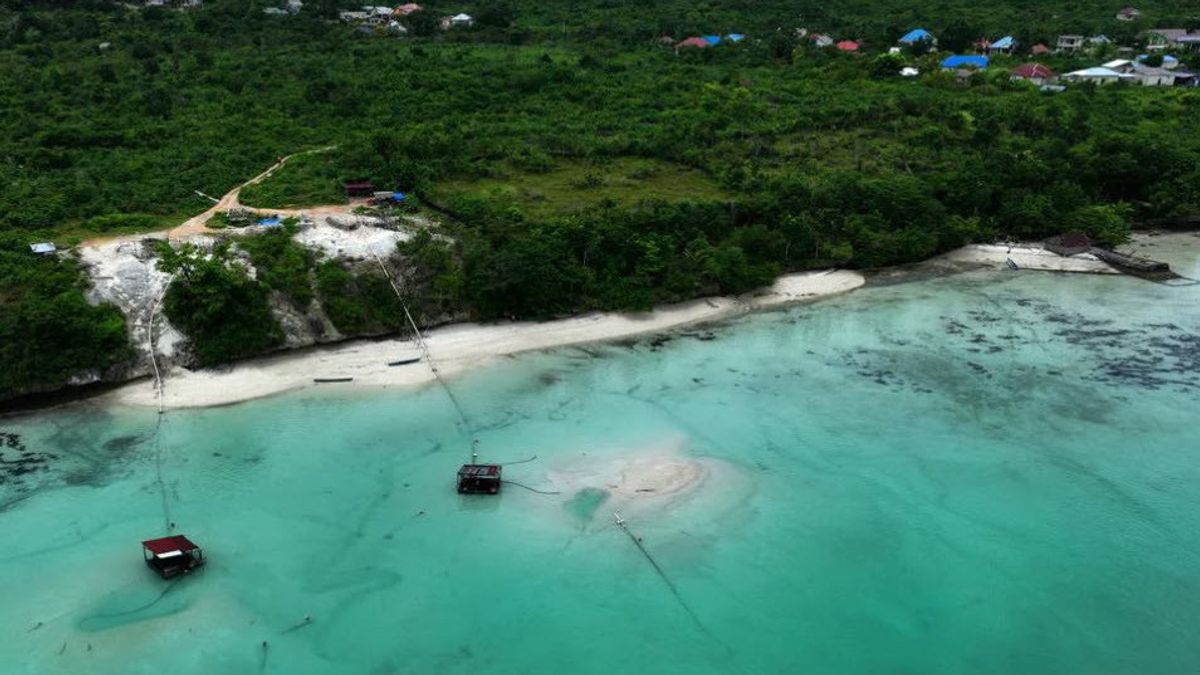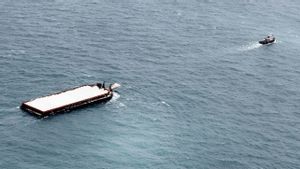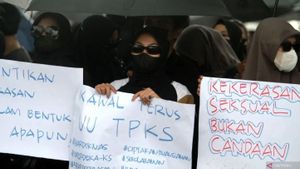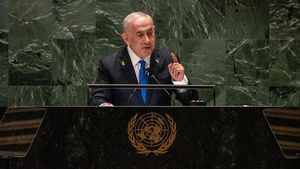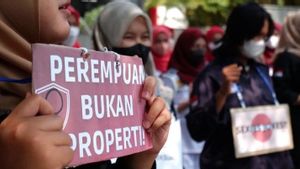The government of President Joko Widodo (Jokowi) is said to be getting further and further away from the spirit of environmental protection and attaching more importance to the interests of oligarchs and entrepreneurs after opening the tap for sea sand exports after 20 years of prohibition.
Jokowi again issued a sea sand export permit through Government Regulation (PP) Number 26 of 2023 concerning Management of sedimentation Results in the Sea.
Previously, sea sand exports were considered illegal for the last 22 years. In the era of President Megawati Soekarnoputri in 2002, sea exports were prohibited by the government.
Sea sand exports returned to legal after the Indonesian Ministry of Trade revised two Regulations of the Minister of Trade (Permendag).
The revision is contained in Permendag Number 20 of 2024 concerning the Second Amendment to the Regulation of the Minister of Trade Number 22 of 2023 concerning Goods Prohibited from Exporting and Permendag Number 21 of 2024 concerning the Second Amendment to Regulation of the Minister of Trade Number 23 of 2023 concerning Export Policy and Regulations signed by the Minister of Trade Zulkifli Hasan.
However, this policy immediately sparked criticism from various circles. Starting from allegations of political motives, state losses, to of course environmental activists. This policy is considered to trigger the destruction of marine ecosystems, increase coastal erosion, damage coral reefs, and cause loss of marine biodiversity.
According to the Ministry of Maritime Affairs and Fisheries, marine sand is a sand dug material located in Indonesian waters that does not contain elements of mineral class A and/or group B in bulk which means to be reviewed in terms of mining economy.
President Jokowi insists that what will be exported is not sea sand, but sedimentation that interferes with the ship's sailing path.
"Once again, it's not marine sand, yes. What was opened was sediment, sediment. What interfered with the ship's flow," Jokowi said, citing Antara. The government claims sea sand exports can increase state revenue. However, according to a study conducted by the Research Institute which focuses on the economy and the CELIOS public policy, it was found that the negative impact on Gross Domestic Product (GDP) was IDR 1.22 trillion, and public income would decrease to IDR 1.21 trillion.
So this study shows that the government's claim that sea sand exports will increase the country's economic benefits and income is excessive.
It's not just a matter of economic gain and state income that is considered 'proud', the reopening of marine sand exports is believed to have a huge impact on the environment.
Environmental activists are worried that the reopening of the export permit by Jokowi will trigger massive environmental damage in coastal areas.
On its official website, GreenpeaceIndonesia said that this rule has further added to Jokowi's long list of policies that are far from the spirit of environmental protection and are more concerned with the interests of oligarchs and entrepreneurs.
GreenpeaceIndonesia strongly rejects the government's decision to reopen the tap for sea sand exports because it will only damage marine and coastal ecosystems, and threaten the lives of fishermen and coastal communities.
"Since last year when Jokowi on May 15, 2023 ratified Government Regulation Number 26 of 2023 which allows sea sand relief or sediment outside the mining area, many criticisms have been conveyed by the public, fishermen, academics to researchers. We have predicted from the start that the Jokowi regime will not care about criticism and will not side with the environment," saidOcean Campaign Leader GreenpeaceIndonesia, Afdillah Chudiel.
SEE ALSO:
Mining of marine sand can damage marine ecosystems, destroy biodiversity habitats, and exacerbate coastal abrasion and tidal flooding.
One of the cases that has occurred is sand mining in the Sprmonde Islands, off the coast of Makassar in 2020, where the Dutch dredging ship, Queen of the Netherlands, dredged marine sand that damaged the fishing area.
"Sand mining can damage fishing fishing areas, reduce productivity, and in the long term it can cause food scarcity," said Afdillah.
Similarly, economic and energy observer from Gadjah Mada University (UGM) Fahmy Karyani urged the government to stop the sea sand export policy. Fahmy said sea sand exports would have a negative impact on environmental and marine ecological damage.
"This causes the sinking of a dangerous island for the people on the coast, and marginalizes fishermen who can no longer go to sea," said Fahmy.
Previously, the government insisted that PP 26/2023 was made to restore marine ecosystems affected by sedimentation. However, Afdillah said, the regulation is a form of greenwashing or damaging policy packaging with environmental recovery labels.
Because although it aims to restore marine ecosystems, it turns out that most of the contents of the regulation regulate the mechanism for licensing and mining sand rather than environmental restoration.
"Until today, we have not seen the form of environmental recovery efforts that are predicted as the main objective of the regulation, instead we are being treated by regulations that are actually launching the sand export business process, not the restoration of the environment," he explained.
Afdillah emphasized that this regulation is not a solution to environmental restoration, but a step back that only benefits a handful of elites and risks exacerbating the ecological crisis and social injustice.
"The government must immediately revoke this regulation and focus on protecting our oceans, and stop exploiting our oceans haphazardly as has happened so far," Afdillah said.
The English, Chinese, Japanese, Arabic, and French versions are automatically generated by the AI. So there may still be inaccuracies in translating, please always see Indonesian as our main language. (system supported by DigitalSiber.id)
